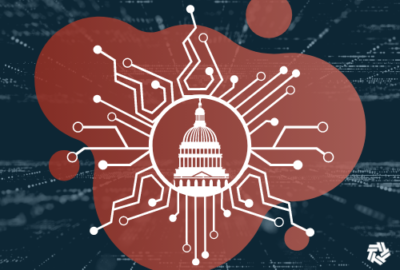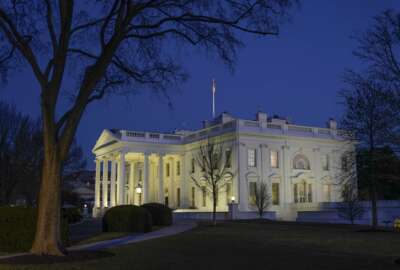Hubbard Radio Washington DC, LLC. All rights reserved. This website is not intended for users located within the European Economic Area.
First Look
OMB looks to hire more evaluation experts across government in FY 2025 budget plan
OMB is also setting government job qualification standards for evaluation expert positions across the federal government.
The Biden administration’s fiscal 2025 budget plan is calling for further investments in the federal government’s ability to produce data and evidence that’ll drive policymaking decisions. The Office of Management and Budget, in budget documents released Monday, plans to hire more program evaluation experts into the federal workforce. OMB is also setting government job qualification standards for these positions across the federal government.
“Evidence-driven policies and programs keep Americans safer and healthier and strengthen their access to educational and economic opportunity,” OMB wrote in its analytical perspectives accompanying the administration’s 2025 budget request. “This administration recognizes the importance of investing in sustaining and strengthening the capacity within agencies to build and use evidence. These investments include the talent necessary to build, use and learn from evidence, specific evaluation activities that invest in America’s future, and other related efforts that reinforce American’s trust in government.”
The administration says evaluation expertise across the federal government is critical to ensure major federal efforts under the CHIPS and Science Act and the Bipartisan Infrastructure Law meet their intended goals.
OMB adds that federal evaluation expertise is also critical to keep agencies on track with goals outlined in President Joe Biden’s sweeping AI executive order signed last October. Among its goals, the executive order calls on agencies to step up their internal use of AI tools to meet their mission.
OMB, in the 2025 budget request, said agencies must evaluate the impacts of AI as they deploy and determine whether it’s helping them deliver public-facing government benefits faster, or increase public outreach for these programs.
“As noted in the executive order, AI holds extraordinary potential for both promise and peril, and it is imperative that the nation seeks to harness AI’s potential for good, recognizing the many benefits it can deliver for the American people,” OMB wrote.
Agency-by-agency evidence investments
The Biden administration is calling for resources to recruit, hire and retain evaluation officers and program evaluation staff across the federal government. OMB states that these “skills and technical expertise are essential to a healthy and high-functioning federal evaluation ecosystem.”
“Recruiting, hiring and retaining staff with program evaluation experience requires the right tools and a commitment to building and sustaining this critical workforce,” OMB wrote.
OMB is developing a governmentwide online library of evaluator position descriptions. The library will include sample language for program evaluation job postings at various GS-levels, and resources to assist agencies through their hiring process, including example interview questions and prompts for writing samples.
“This library will help agencies recruit and retain the qualified talent needed to design, oversee and execute their program evaluation activities,” the budget document wrote.
As part of its budget request, the Biden administration is looking for additional funding in fiscal 2025 for the Office of Personnel Management’s data analytics capabilities, and to “better use federal workforce data.”
“Federal human capital data are critical to understanding the government’s workforce, and to building evidence on how to attract, hire, develop and retain the talent needed to deliver for the American people,” OMB wrote.
The administration notes OPM is relying on data and evaluation experts to make critical decisions related to the Paid Parental Leave Program for the federal workforce, as well as the creation of a new Postal Service Health Benefits (PSHB) Program, separate from the Federal Employees Health Benefits (FEHB) Program.
The administration is also showcasing the Veterans Health Administration’s evidence-based approach to mental health care and suicide prevention among veterans. VHA is making these issues a top priority in its 2025 annual evaluation plan.
“VHA is demonstrating its dedication to building and using evidence to better serve those who have served,” OMB wrote. “VHA is executing a set of evaluations that all seek to answer the question, ‘What strategies work best to prevent suicide among veterans?’”
Among its ongoing programs, VHA, through its Caring Letters program, is sending outreach letters to veterans after they’ve called the Veterans Crisis Line, and addressing depression among low-income veterans who have just given birth through targeted telehealth intervention programs.
The Biden administration is requesting $2.6 million to create a new program evaluation office at the Interior Department. It’s also calling funds so the Treasury Department can staff up and maintain its program evaluation work.
The budget request also supports an evidence lead for the Justice Department’s management division, and funding at the Department of Housing and Urban Development’s Office of Policy Development and Research to remain at current levels.
The administration is requesting that the Labor Department be able to set aside 0.75% of its appropriations, “for conducting significant and rigorous evaluations.”
It also supports creating an evaluation funding flexibility general provision, which would give DoL’s Chief Evaluation Office, its Bureau of Labor Statistics and the Department of Health and Human Services’ Administration for Children and Families the ability to use evaluation funds over a greater period of time “to support strategic, long-term and flexible evaluation planning.”
Creating a ‘culture of experimentation’
The administration expects its budget plan for 2025 will help drive a “culture of experimentation” across the federal government.
OMB notes that several agencies have a deep history of evidence-based policy expertise, but “in many parts of the government, however, agencies are still largely reluctant to experiment and embed regular evaluation in their operations and mission execution even when it is allowable and feasible.”
“The hesitation is understandable; program leaders are often afraid of uncovering poor results or calling longstanding practices into question, and concerned about the consequences of sharing negative findings,” OMB wrote. “A culture of experimentation challenges agencies to overcome inertia and biases that favor the status quo. When agencies adopt a learning and improvement mindset, the insights that result allow agencies to execute their missions and operations more effectively.”
OMB, in partnership with OPM’s Federal Executive Institute, launched an Evidence-Based Decision-Making Leadership Academy for senior executives last year.
The academy trained its first cohort of federal executives from nine agencies in November 2023. Executives who took the training came from budget and performance, legislative affairs, human capital, grants, civil rights and other fields.
“At the conclusion of the academy, these senior executives will leave with an action plan for how they will apply what they have learned to advance evidence-based decision-making in their agencies,” OMB wrote.
OMB added that demand for the initial cohort “far exceeded the available slots, which indicates that leaders see value in pursuing this kind of training.”
Among its evidence-based policymaking priorities for 2025, the administration is looking at ways to help those receiving unemployment insurance reenter the job market.
“Fundamentally, the federal government can serve communities and the American public better if agencies understand what is working well, what is not working well, and how agencies can do better,” OMB wrote.
It’s also requesting $4 billion for HUD to continue its evidence-based approach to homeless assistance programs, and asking for nearly $8 billion to fully fund the Special Supplemental Nutrition Program for Women, Infants and Children (WIC)
“Recent efforts in outreach and to modernize [WIC] have contributed to increased program enrollment and participation,” OMB wrote.
What’s working under the Evidence Act
The Biden administration also touted the progress agencies have made five years after Congress passed the Foundations for Evidence-Based Policymaking Act into law.
“Over five years since the passage of the Evidence Act, there is growing enthusiasm and continued progress across the Federal Government to harness the law’s call to build and use evidence to effectively serve all Americans,” OMB wrote.
Among its requirements, the legislation mandated that the 24 largest federal agencies create learning agendas.
OMB states that learning agendas contain a list of high-priority questions, “that, when answered, can inform consequential decisions and high-priority functions, while limiting ad hoc and uncoordinated analytic efforts and the associated inefficient use of scarce resources.”
Agencies have also named chief data and chief evaluation officers under the legislation, and produced annual evaluation plans. OMB keeps track of these developments on Evaluation.gov.
“Over a remarkably short period of time, federal agencies have established the leadership, processes and routines needed to build up the systems and structures required by Title I of the Evidence Act,” OMB wrote.
Copyright © 2024 Federal News Network. All rights reserved. This website is not intended for users located within the European Economic Area.
Jory Heckman
Jory Heckman is a reporter at Federal News Network covering U.S. Postal Service, IRS, big data and technology issues.
Follow @jheckmanWFED
Related Stories
Exclusive
Agency Oversight
Read more
OMB memo elevates evidence-building as ‘need-to-have,’ evaluation experts say
DHS vows greater transparency, evidence building under new statistics office
Related Stories
-
DHS vows greater transparency, evidence building under new statistics office Open Data/Transparency





